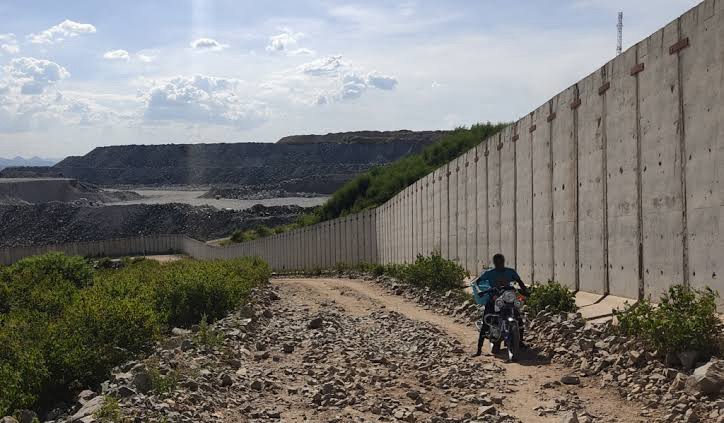Human rights activists and advocacy groups in Tanzania have come under fire from victims of violent incidents at the North Mara gold mine. The victims accuse these groups of profiting from their misfortunes by pocketing a significant portion of the compensation paid by the mine, leaving the victims with only a fraction of what is due to them.
The North Mara gold mine, jointly owned by Barrick Gold and the Government of Tanzania through Twiga Minerals Corp, has long been troubled by incidents of trespassing, with locals attempting to steal gold-bearing ore. These incursions often occur in broad daylight, with the intruders armed with traditional weapons such as machetes, spears, bows, and arrows.
During these confrontations, both intruders and security personnel have suffered serious injuries, and in some cases, lives have been lost. When such incidents occur, human rights activists intervene to advocate for compensation on behalf of the victims.
One notable case involves Mr. Samwel Mwita Nyangore, a resident of Siriba village in Tarime District, Mara Region. He and his colleagues were involved in an altercation with police officers while attempting to trespass on the mine in 2011. During the confrontation, Mr. Nyangore was shot and severely injured.
While receiving treatment in hospital, Mr. Nyangore was approached by lawyers from the UK-based firm Leigh Day, who offered to help him and other victims seek justice. The firm subsequently filed a lawsuit against Acacia Mining, which operated the North Mara mine at the time.
However, before the case could be concluded, both parties agreed to settle out of court in 2015, with Acacia Mining agreeing to compensate the victims.
Mr. Nyangore, still hospitalized, was later visited by two lawyers—one foreign and one Tanzanian—who presented him with a cheque for TZS 150 million. After his discharge from the hospital, Mr. Nyangore discovered that the amount he received from Leigh Day was significantly less than the total compensation paid by Acacia Mining.
A report by the German broadcaster Deutsche Welle (DW) revealed that Acacia Mining had paid TZS 387.54 million in compensation to Mr. Nyangore, but he had only received TZS 150 million—38.6% of the total amount.
Samuel Peter Timasi, Chairman of the local NGO MUCHATA, which opposes injustices in Tanzania, stated, “Human rights advocates from the UK and Canada often receive substantial sums of money as compensation when handling these cases for Nyamongo residents, but the victims themselves receive only a small portion, which does not reflect the suffering they endured.”
Mr. Timasi further alleged that these activists, in collaboration with their Tanzanian counterparts, exploit the victims’ lack of education and understanding to deny them their rightful compensation.
For many years, Leigh Day has handled cases involving individuals who trespass on the mine to steal gold-bearing ore. However, the firm has faced increasing criticism for allegedly enriching itself at the expense of the victims by taking a large share of the compensation awarded.
When asked for comment, Leigh Day denied the allegations and refused to disclose the amounts paid to their clients, citing confidentiality. However, research conducted by DW and documents obtained from court records indicate that Leigh Day typically retains between 60% and 70% of the compensation awarded by the mine.
These cases are often handled outside Tanzania, making it easier for such exploitation to occur. Tarime Rural MP, Hon. Mwita Waitara, confirmed that complaints have been lodged by victims of these incidents.
“Leigh Day claims to defend the rights of the people, but this is a lie. They are the ones who benefit the most from these cases,” said MP Waitara.
The controversy surrounding compensation for victims of the North Mara mine has raised serious questions about transparency and fairness in the compensation process. While activists and law firms present themselves as defenders of human rights, the accusations against them paint a different picture, with victims claiming they have been shortchanged. More efforts are needed to ensure that victims receive their rightful compensation and that the legal and compensation systems operate with transparency and equity.


